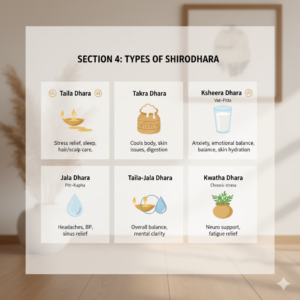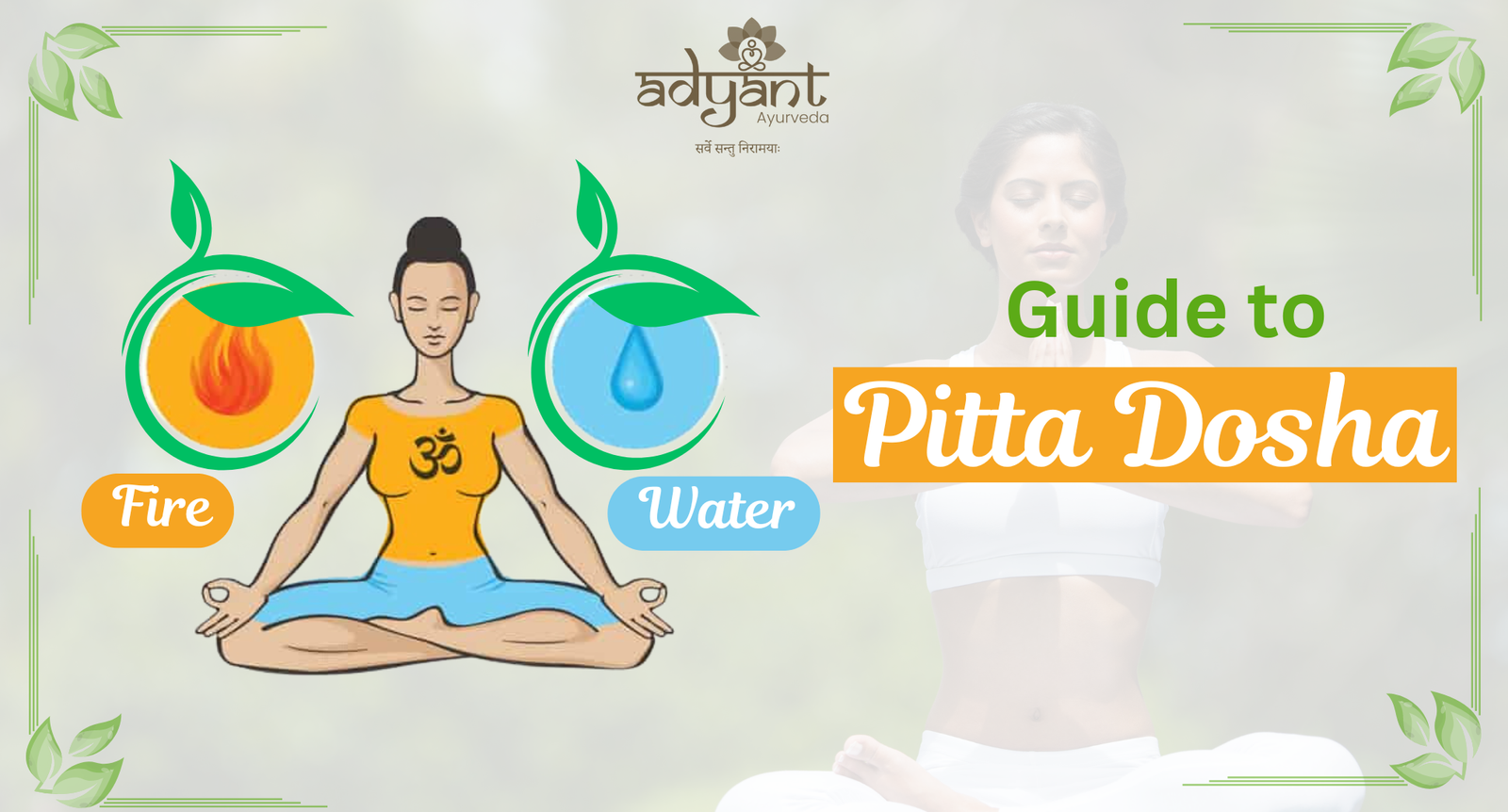Table of Contents
ToggleShirodhara is an ancient and powerful Ayurvedic therapy designed to calm the mind, reduce stress, improve sleep, and restore overall body balance. This treatment involves the continuous and rhythmic pouring of warm liquid over the forehead, especially targeting the Ajna chakra (third eye).
Origin of the Term:
Shiro – Head
Dhara – Flow
While Shirodhara is widely recognized for its relaxing benefits, not all treatments are the same. Ayurveda customizes therapy based on your dosha (body constitution), current health condition, and wellness goals.
At Adyant Ayurveda, Bangalore, our expert doctors provide personalized Shirodhara sessions using authentic herbal oils, milk, buttermilk, or herbal decoctions to maximize therapeutic benefits.
Call +91 99725 41009 | www.adyantayurveda.com
Meet Our Expert Doctors for Shirodhara
Dr. Shree Lakshmi – 28+ years, expert in Panchakarma & women’s health
Dr. Bhagya Lakshmi – 22+ years, expert in stress management & chronic diseases
Dr. Vidya – 19+ years, expert in skin, migraine, and metabolic disorders
Dr. Sumana Patvardhan – 24+ years, Ayurvedic skin specialist
Dr. Preeti – 22+ years, expert in Panchakarma and mental wellness
All sessions are personalized based on your dosha, health condition, and wellness goals.
Why Different Types of Shirodhara Exist
Ayurveda emphasizes personalized healing. The liquid used in Shirodhara varies according to:
Dosha imbalance: Vata, Pitta, Kapha
Health concerns: Stress, insomnia, migraines, hormonal imbalance, skin issues
Treatment goals: Relaxation, detoxification, rejuvenation, and neurological support
Each type serves a specific therapeutic purpose.

Different Types of Shirodhara and Their Benefits
1. Taila Dhara (Oil-Based Shirodhara) – Stress & Anxiety Relief
Best for: Vata imbalance (nervousness, insomnia, joint pain)
Liquid Used: Medicated oils like Brahmi oil, Ksheerabala oil
Benefits:
Calms the nervous system & reduces stress
Improves sleep quality
Nourishes scalp & strengthens hair roots
Who Should Choose: Chronic stress, insomnia, mental fatigue; dry skin, hair fall, scalp issues
2. Takra Dhara (Buttermilk-Based Shirodhara) – Pitta Disorders
Best for: Pitta imbalance (anger, inflammation, skin issues)
Liquid Used: Buttermilk with cooling Ayurvedic herbs
Benefits:
Cools body & mind
Reduces psoriasis, eczema, and acne
Balances emotions & improves digestion
Who Should Choose: Skin conditions like psoriasis, eczema; excess body heat, acidity, migraines
3. Ksheera Dhara (Milk-Based Shirodhara) – Anxiety & Nervous Disorders
Best for: Vata-Pitta imbalance (anxiety, weak immunity, hyperactivity)
Liquid Used: Warm milk with rejuvenating herbs
Benefits:
Soothes nervous system & emotional tension
Hydrates skin & improves glow
Enhances mental and emotional stability
Who Should Choose: Anxiety, nervous exhaustion, emotional distress; skin dryness or premature aging
4. Jala Dhara (Water-Based Shirodhara) – Headaches & High Blood Pressure
Best for: Pitta-Kapha imbalance (migraines, hypertension, sinus congestion)
Liquid Used: Herbal-infused warm or cool water
Benefits:
Reduces headaches & migraines
Lowers blood pressure
Clears sinus congestion & improves sleep
Who Should Choose: Chronic headaches, migraines, hypertension, sinus congestion, or seasonal allergies
5. Taila-Jala Dhara (Oil + Water) – Overall Balance
Best for: Tri-dosha balance (Vata, Pitta, Kapha)
Liquid Used: Warm oil & water blend
Benefits:
Harmonizes all three doshas
Enhances mental clarity & emotional balance
Promotes holistic rejuvenation
Who Should Choose: Mild imbalances in all doshas; individuals seeking holistic wellness
6. Kwatha Dhara (Herbal Decoction) – Chronic Stress & Neurological Issues
Best for: Chronic stress, migraines, neurological disorders
Liquid Used: Customized herbal decoctions
Benefits:
Relieves deep-seated stress & trauma
Supports brain & neurological health
Reduces chronic fatigue, muscle tension, and nerve pain
Who Should Choose: Neurological issues like Parkinson’s, paralysis, extreme stress, or adrenal fatigue
How to Choose the Right Shirodhara
| Condition/Concern | Best Type of Shirodhara |
|---|---|
| Stress, Anxiety, Insomnia | Taila Dhara (Oil-Based) |
| Skin Disorders, Acidity, Anger | Takra Dhara (Buttermilk-Based) |
| Nervous Exhaustion, Emotional Imbalance | Ksheera Dhara (Milk-Based) |
| High BP, Migraines | Jala Dhara (Water-Based) |
| Overall Dosha Balance | Taila-Jala Dhara |
| Chronic Stress, Neurological Disorders | Kwatha Dhara (Herbal Decoction) |
Consult an experienced Ayurvedic doctor for assessment before therapy.
Procedure: What to Expect
Preparation: Gentle Abhyanga (oil massage) may be done before Shirodhara.
Liquid Pouring: Warm herbal oil, milk, buttermilk, or decoction is poured rhythmically on the forehead for 30–60 minutes.
Post-Therapy Care: Rest for at least 30 minutes, avoid cold air, drink warm water, and wash hair after a few hours.
Cost of Shirodhara in Bangalore
Single Session: INR 2000/-
Includes doctor consultation, high-quality herbal oils/decoctions, trained Panchakarma therapist guidance, and therapeutic ambiance.Packages: Available for 7–14-day therapies for chronic stress, migraines, and insomnia.
Scientific Evidence & Research
Clinical studies show Shirodhara reduces stress and anxiety, improves sleep, and enhances mental clarity (Frontiers in Psychology, 2021).
Comparative research highlights specific benefits of Taila, Takra, Ksheera, and Jala Dhara for dosha-specific imbalances.
Safety Considerations
Shirodhara is generally safe, but should be avoided in:
Pregnancy (without a doctor’s advice)
Very low blood pressure or fever
Sinus congestion, recent head injury, or chronic cold
Integration with Other Therapies
Shirodhara can be combined with:
Abhyanga (Oil Massage) – Enhances relaxation and oil absorption
Nasya (Nasal Therapy) – Supports mental clarity and respiratory health
Panchakarma Detox – Complements full-body rejuvenation and stress reduction
10 FAQs About Shirodhara Therapy
What is Shirodhara?
Ayurvedic therapy with rhythmic warm liquid pouring on the forehead relieves stress, insomnia, and mental fatigue.
How do I know which type is right for me?
Depends on your dosha and health concerns: Taila for Vata, Takra for Pitta, Ksheera for Vata-Pitta, etc.
How often should I take Shirodhara?
Relaxation: Once a week; Chronic issues: Daily for 7–14 days as prescribed.
Can it be done at home?
Not effectively. Requires precise temperature control, herbal selection, and pouring technique.
Is Shirodhara safe?
Generally safe. Avoid if you have a fever, sinus congestion, low BP, pregnancy (without advice), or a recent head injury.
How long is a session?
Typically 45–60 minutes.
Are there any side effects?
Mild drowsiness or relaxation is normal. No long-term side effects when done correctly.
Can Shirodhara help migraines and hypertension?
Yes, Jala Dhara or Taila-Jala Dhara can reduce headaches, blood pressure, and stress.
Who performs the therapy?
Certified Panchakarma therapists under the guidance of experienced Ayurvedic doctors.
How do I book a session?
Call +91 99725 41009 or visit adyantayurveda.com to schedule personalized Shirodhara therapy.
Final Thoughts
Shirodhara is a deeply relaxing and rejuvenating therapy suitable for:
Stress relief
Mental clarity
Emotional balance
Neurological support
Choosing the right type ensures maximum benefits.
Experience authentic Shirodhara at Adyant Ayurveda, Bangalore, starting at 2000 per session, guided by highly experienced doctors and performed with pure Ayurvedic herbs and oils.
Call +91 99725 41009 | www.adyantayurveda.com
Disclaimer: This content is for educational purposes only and is not a substitute for professional medical advice. Consult an Ayurvedic doctor before beginning any therapy. Results may vary depending on individual health conditions.
Last Updated: September 20, 2025









